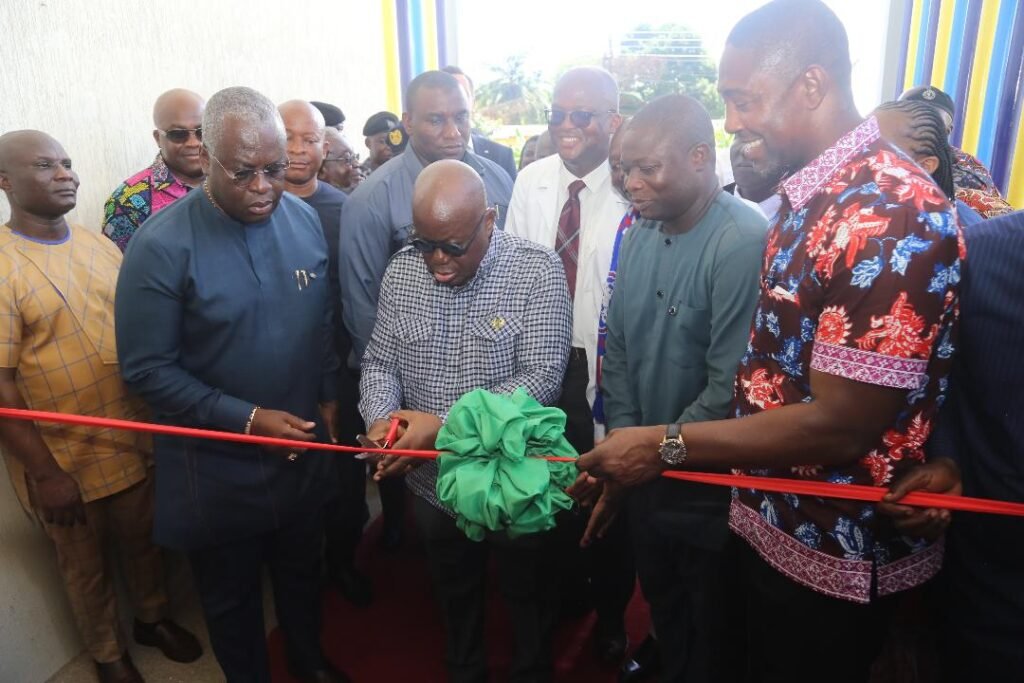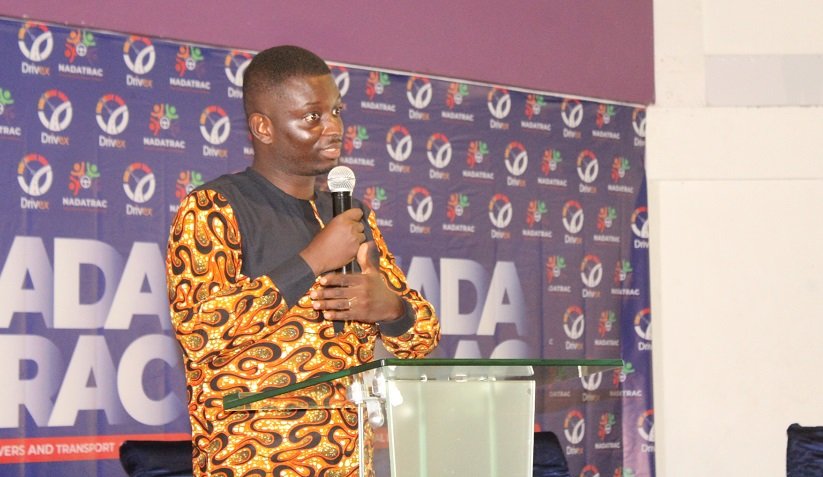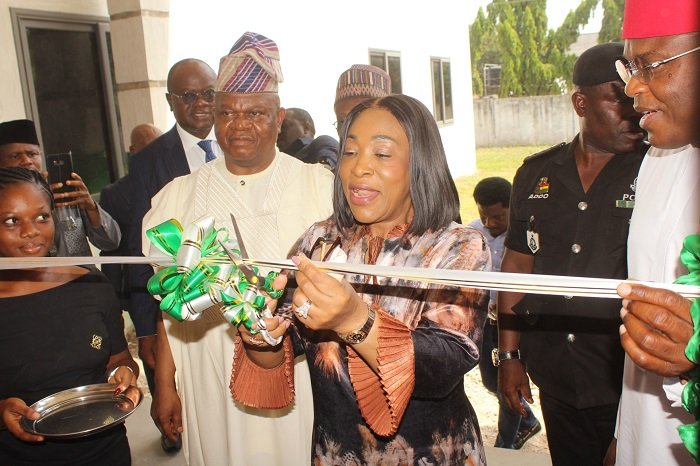ARTICLE AD
President Nana Addo Dankwa Akufo-Addo last Friday inaugurated the new state-of-the-art Urology and Nephrology Centre of Excellence at the Korle-Bu Teaching Hospital (KBTH), in Accra.
Funded with credit facility from the Raiffeisen Bank International AG of Austria with insurance cover from OeKB Group the centre is the largest and one of its kind in sub-Saharan Africa.
 •
President Akufo-Addo (middle) cutting the tape to open the facility for use
•
President Akufo-Addo (middle) cutting the tape to open the facility for use
It has a 31-suite dialysis station for persons with kidney disorders, and 70 beds for genito-urinary patients.
Units under the Centre include outpatient, diagnostic and treatment, in-patient services, administration, training room, management and technology centre.
The new centre offers out-patient services and also serves as a resource base to conduct research into urology and nephrology cases.
Launching the facility, President Akufo-Addo said the facility was designed to effectively address urologic-related diseases, which are common among men of 40 years and above, describing it as a game-changer in providing urologic healthcare services.
He said the construction of the facility, which commenced in 2020, affirmed his government’s resolve to achieve universal healthcare coverage in the country.
President Nana Akufo-Addo expressed confidence that the construction of the edifice at the KBTH would put the country’s largest health referral facility in a strong position to give meaning to medical tourism services to neighbouring countries and also increase its revenue base to expand service.
He therefore tasked the management of the KBTH to work assiduously to ensure proper utilisation and maintenance of the ultra-modern health facility.
He hinted that some 69 per cent of the projects under the ‘Agenda 111’, a flagship initiative of his government meant to boost health infrastructure in the country, were almost completed.
“Healthcare infrastructure stands as one of the legacies of my Administration,” the President emphasised.
The Minister of Health, Dr Bernard Okoe-Boye, on his part was hopeful that the Centre would boost surgical care for urologic emergency cases in the country.
He said the government of Nana Akufo-Addo had invested heavily in improving the overall healthcare delivery in the country and would continue to deliver on its pledge to promote healthcare infrastructure for all.
Professor James E. Mensah, Head of the Urology Unit, KBTH, stressed the need for the nation to maximise investment in the training of urologists. Currently, Ghana had only 78 urologists, he hinted, noting that the number was woefully inadequate given the increasing number of urologic cases in the country.
Urologic diseases refer to a wide variety of conditions, all related to the filtering and carrying of urine out of the body.
Medical experts explain emergency urologic conditions are relatively common, albeit rarely life threatening, there is often a need for prompt and expedient management in order to avert severe or permanent morbidities.
Some common urological conditions include prostate cancer, bladder cancer, bladder prolapse, hematuria (blood in the urine), erectile dysfunction (ED), interstitial cystitis (also called painful bladder syndrome), overactive bladder, and prostatitis (swelling of the prostate gland).
The Korle-Bu Teaching Hospital saw an increase of some 14, 000 urologic cases at the Out-Patient-Department (OPD) in 2023, according to the management.
BY CLIFF EKUFU

 1 month ago
23
1 month ago
23 

